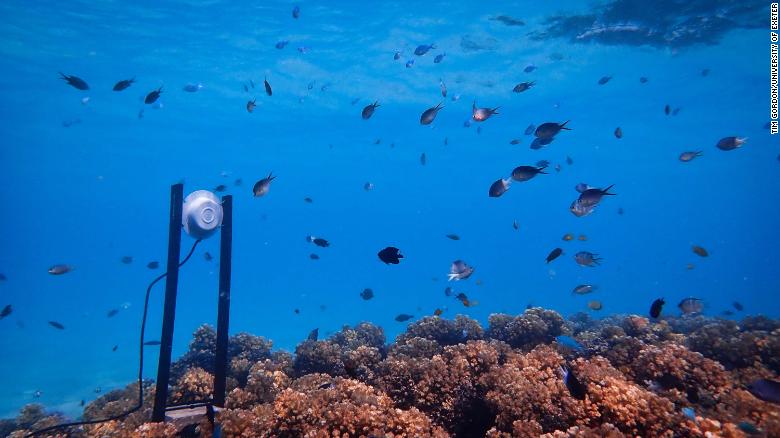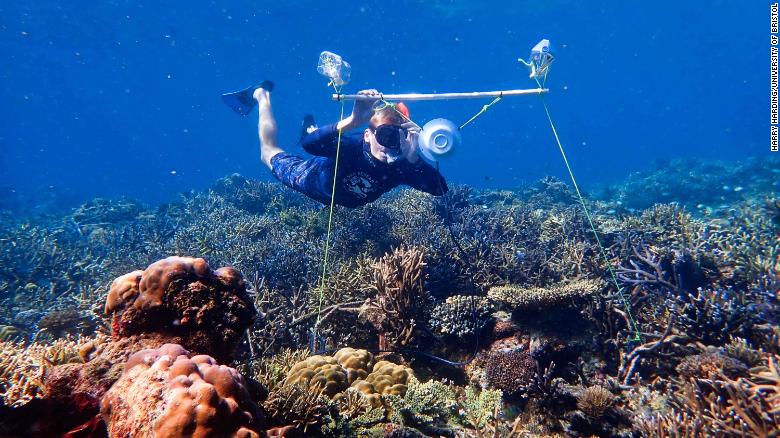By playing the sounds of a healthy coral reef underwater, young coral fish can be lured to return to damaged coral reefs. There they can help restore the ecosystem.

This is what researchers at the University of Exeter say after an experiment in which they placed speakers that played an orchestra of clapping shells, the crackle of shrimps and tail-strikes and bubbles.
Healthy vs damaged reefs
Thanks to nature documentaries, most people have an image of a healthy coral reef: capriciously shaped lime formations with brightly colored algae and anemones and a wealth of fish species. Less known is that a vital coral reef is also very noisy. That sound stops when the reef gets sick. In addition, the scents that the coral reef spreads changes.
Many coral reefs in the world have been severely damaged by pollution, overfishing, and acidification due to rising CO2 concentrations and above all ‘bleaching’, a result of increasing heatwaves.

If the conditions on the reef improve, the coral reefs can recover. However, another problem is not solved: many other animal species in the ecosystem have also left and they won’t return as easily. Many fish species depend on the reefs for shelter and food. And the fish, in turn, help keep the coral ecosystem in a healthy balance, so their return is a good first step.
Researchers from the University of Exeter announced that they found a solution to lure fish back to coral reefs; by placing speakers that play recordings of a healthy coral reef.
Fish population doubled
By playing these sounds underwater, twice as many fish and 50 percent more species have returned to the reef. If we combine this with the restoration of habitats and active protection measures, ‘acoustic enrichment’ may, according to the researchers, help to restore damaged coral reefs faster.
However, the future of many reefs also depends heavily on the global approach to climate change. Coral reefs are one of the most climate-sensitive ecosystems in the world. The Intergovernmental Panel on Climate Change (IPCC), among others, warns that many of these systems important for fish and coastal protection will disappear if global warming continues beyond 1.5 degrees.





















